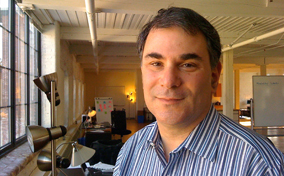Calling all innovators and designers. It is time to get below the buzzwords and to mobilize our networks with urgency and purpose. Waiting for public and private sector institutions to transform our urban economies won’t work. It is up to us to deliver on the promise of social media platforms and self-organizing networks. We must mobilize purposeful networks to address the big social challenges of our time including education, economic, and workforce development. I got a big wake up call last week while visiting Detroit for the first time. Talk about a burning platform. If you need a call to action just visit Detroit and see the devastation for yourself.
This once great industrial city is a shell of its former self. Detroit has lost half of its population going from a peak in the 1950′s of 2 million to under 1 million in the 2000 census. It is expected that the population will settle below 700,000 as unemployment and home foreclosures continue to fuel out-migration. What is to become of those that can’t get out and are left behind?
Real unemployment rates in Detroit are thought to be as high as 50% and recent block-by-block surveys indicate that about one in three land parcels are either vacant or abandoned. Arne Duncan, Secretary of Education, called Detroit Public Schools a national disgrace that keeps him up at night. The new Mayor, Dave Bing, is talking about downsizing the city including drastic plans to relocate residents from desolate to stable neighborhoods.
 You get the picture. It is enough to make you cry. Detroit isn’t the only urban center that has been devastated by the departure of an industrial era along with its good manufacturing jobs. Is your city far behind Detroit? The need for bold moves and real systems change seems so obvious. We can’t possibly address these challenges with tweaks to our current economic, education, and workforce development systems.
You get the picture. It is enough to make you cry. Detroit isn’t the only urban center that has been devastated by the departure of an industrial era along with its good manufacturing jobs. Is your city far behind Detroit? The need for bold moves and real systems change seems so obvious. We can’t possibly address these challenges with tweaks to our current economic, education, and workforce development systems.
I went to Detroit to participate in a conversation about changing the trajectory of our urban economies. I had high expectations but the well-intentioned leaders assembled seemed resigned to working within current economic development models and systems to change our urban outcomes. I guess I naively expected more outrage and a greater sense of urgency for bold action to change the trajectory.
Maybe I am too impatient and biased on the need for disruptive innovation but I can’t help hoping that burning platforms like Detroit will light a fire to enable bolder thinking and action. After listening for a while I asserted that if we want to change the trajectory of urban economies we should start by changing the trajectory of our conversation. There was little traction for the premise that we need to or can transform industrial era systems that have evolved over a long period of time and seem unchangeable. Note to self, I need to get much better and clearer at articulating the imperative for R&D at the systems level.
It was like déjà vu for me to participate in an economic development conversation with the main thrust being how to attract more venture capital, advance cluster strategies, scale entrepreneurial support programs, and get economic and workforce development programs to actually talk with one another. Not that these programs aren’t necessary and important but anyone who thinks we are going to turn around Detroit or any other urban center without disruptive system change is kidding themselves.
The system change we need must be directly relevant to real people in real neighborhoods. Citizens living at and below national poverty levels in our urban centers are so far removed from talk about venture capital and an innovation economy it isn’t funny. We need to transform our economic, education, and workforce development systems now. They must be designed around the citizen and not around institutions with a vested interest in today’s systems. We need to demonstrate that a new system approach is directly relevant to citizens at every wage, experience, and education level. Every citizen in every neighborhood must see an accessible job ladder and feasible path forward. Every citizen not just those of us with access to better economic and education opportunities must believe and see how they can participate in an innovation economy.
We need to design, explore, and scale new systems around the citizen with direct connections at the neighborhood level. Our rhetoric is too much about institutions and not enough about real people. We are too focused on current systems and not bold enough to design and experiment with new system approaches. What are we waiting for? Let’s turn our cities in to innovation hotspots and living laboratories. Our citizens are waiting.









Leave a Reply